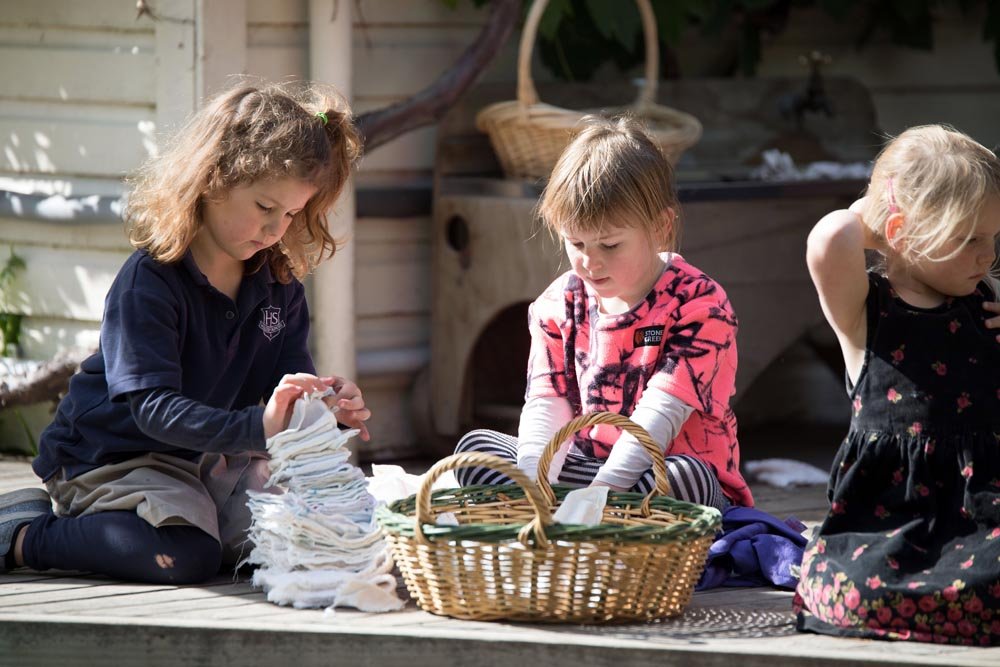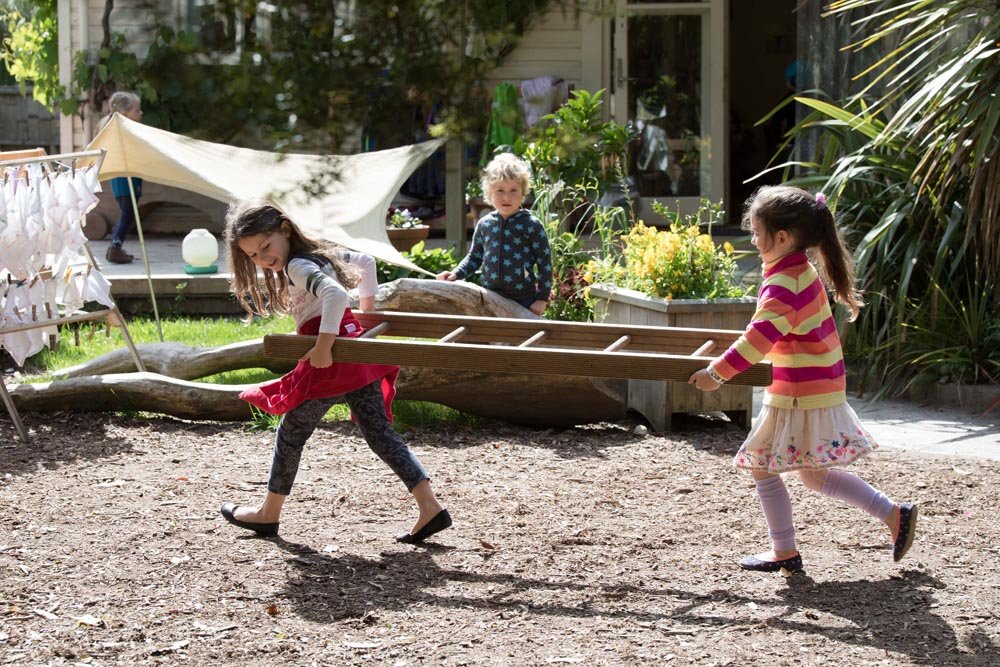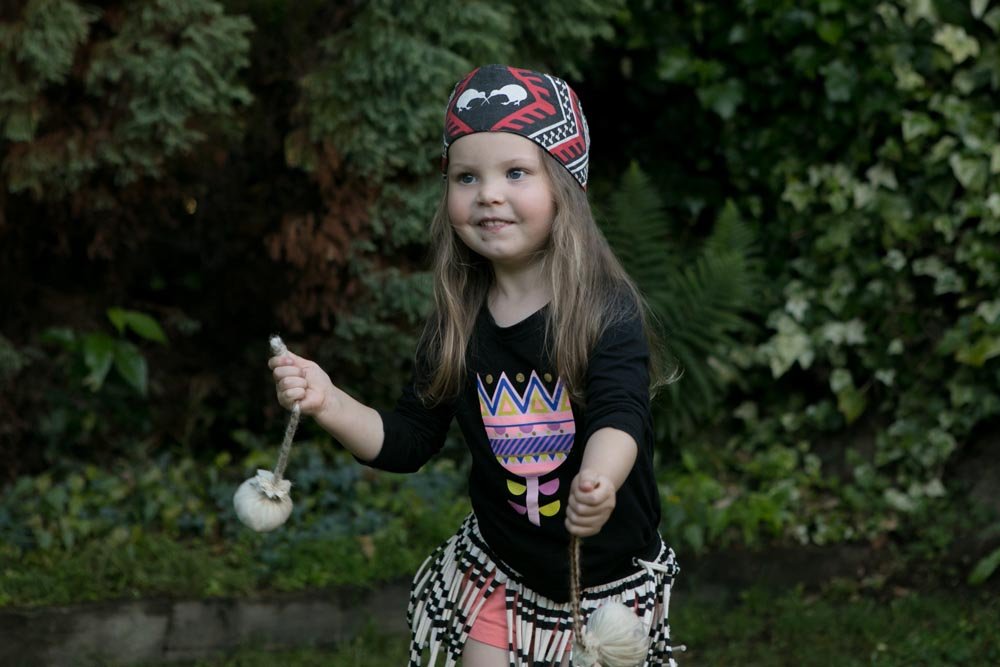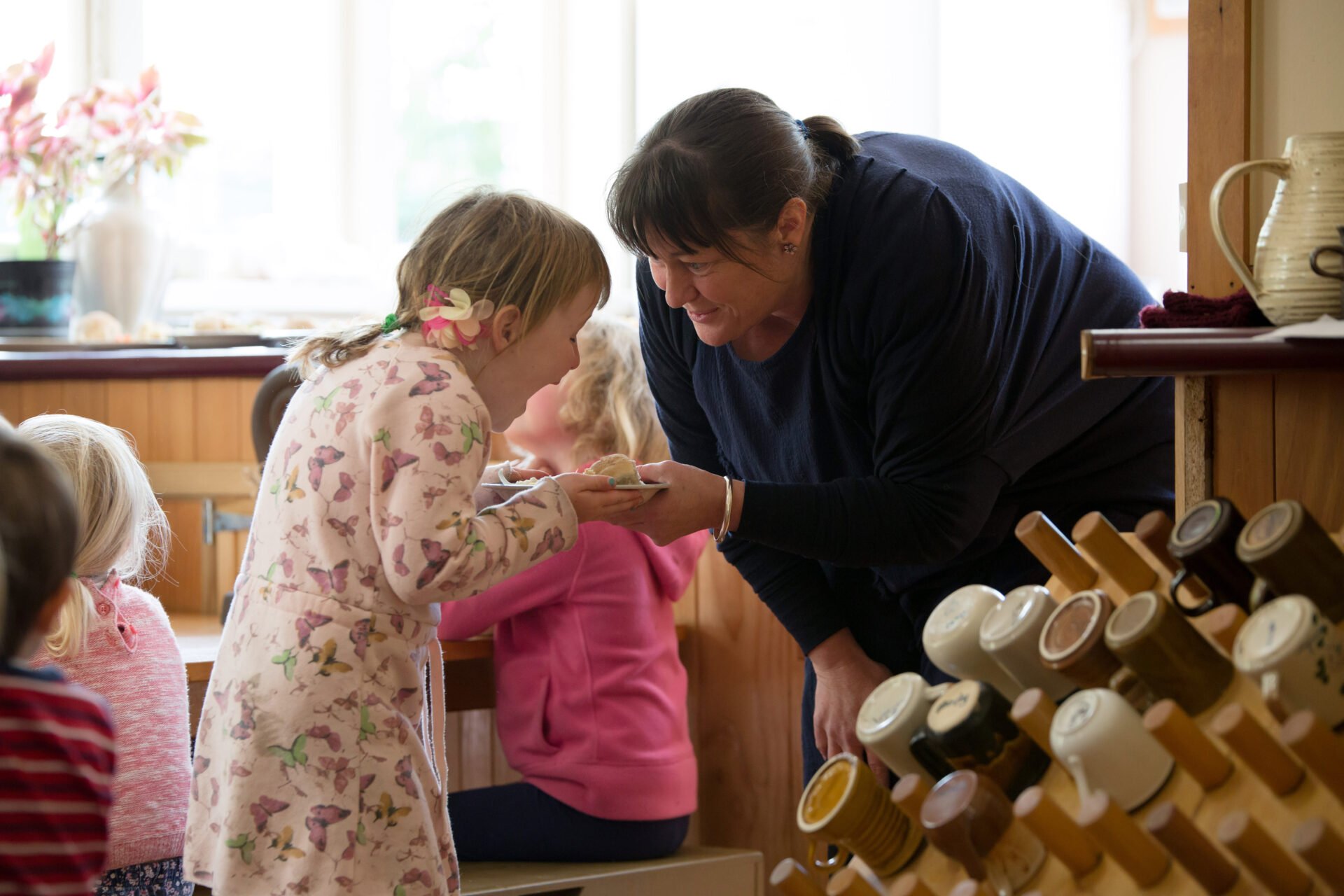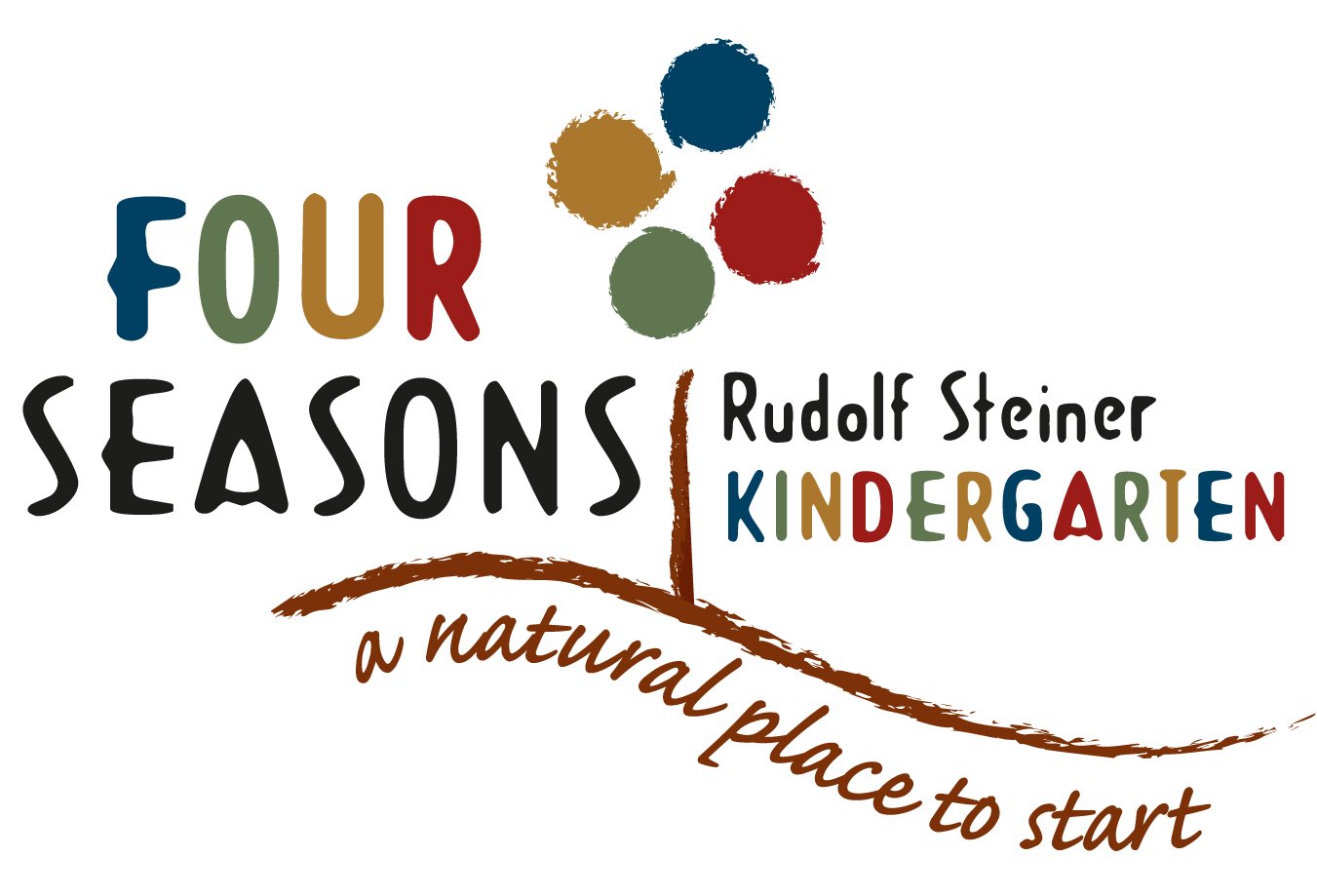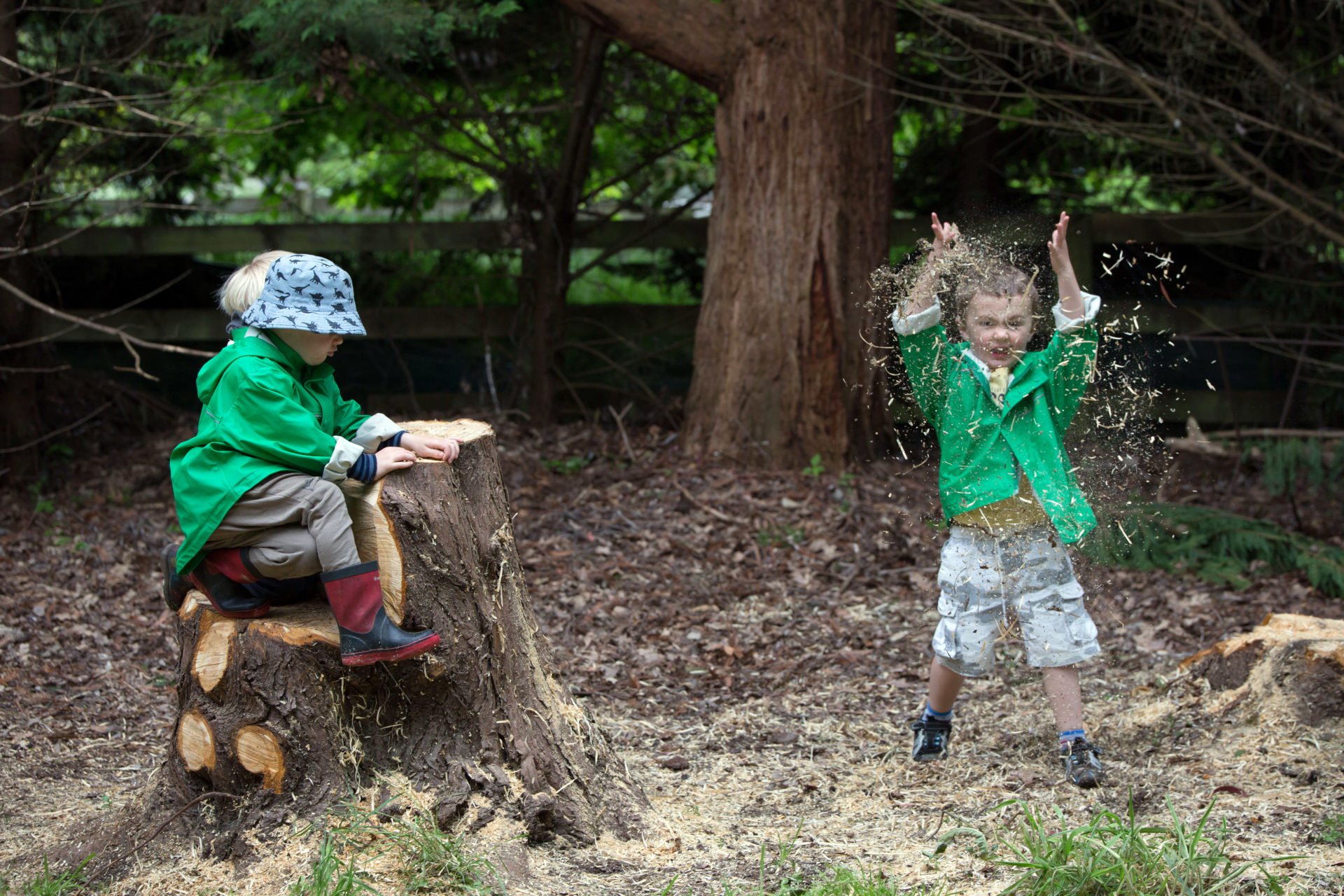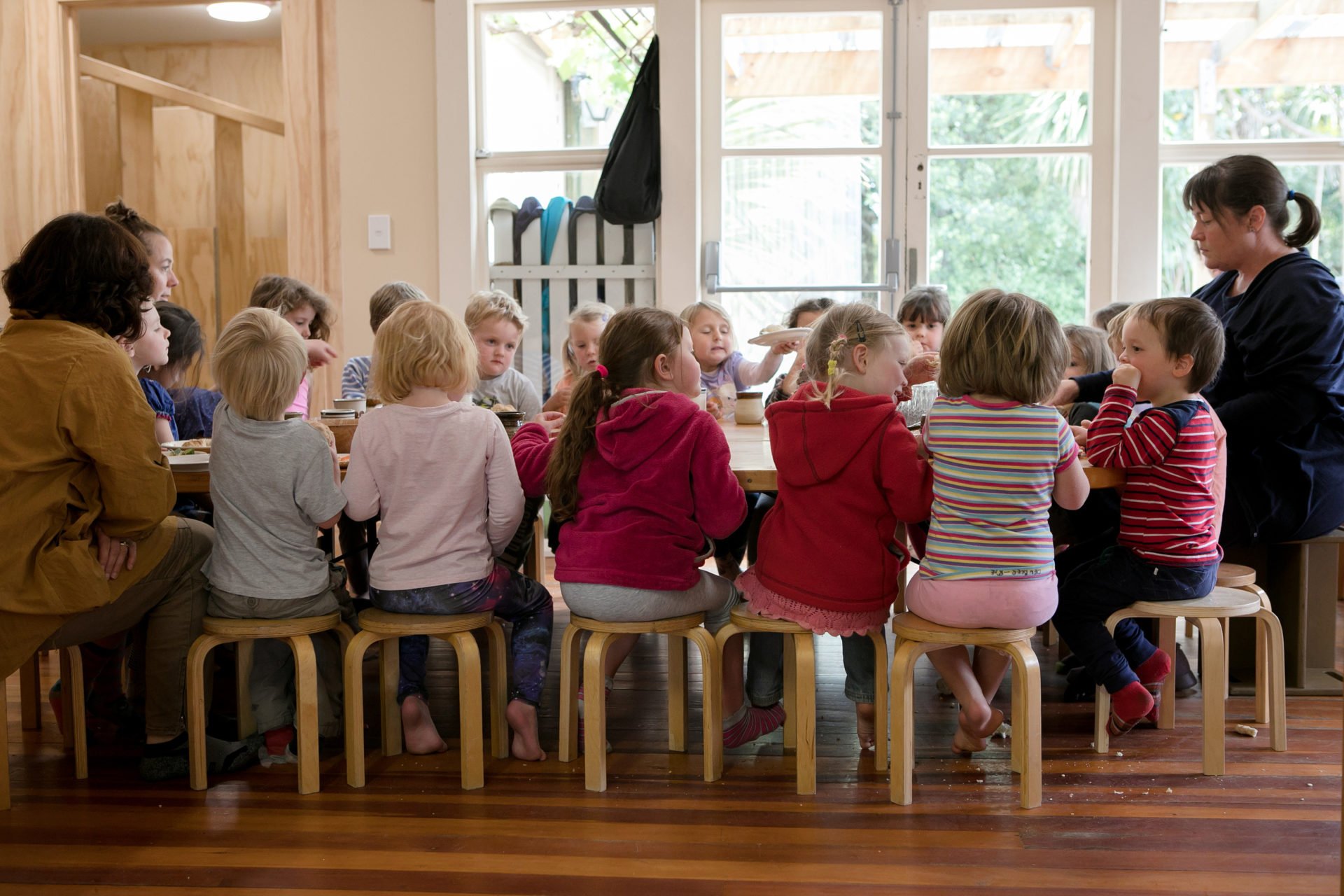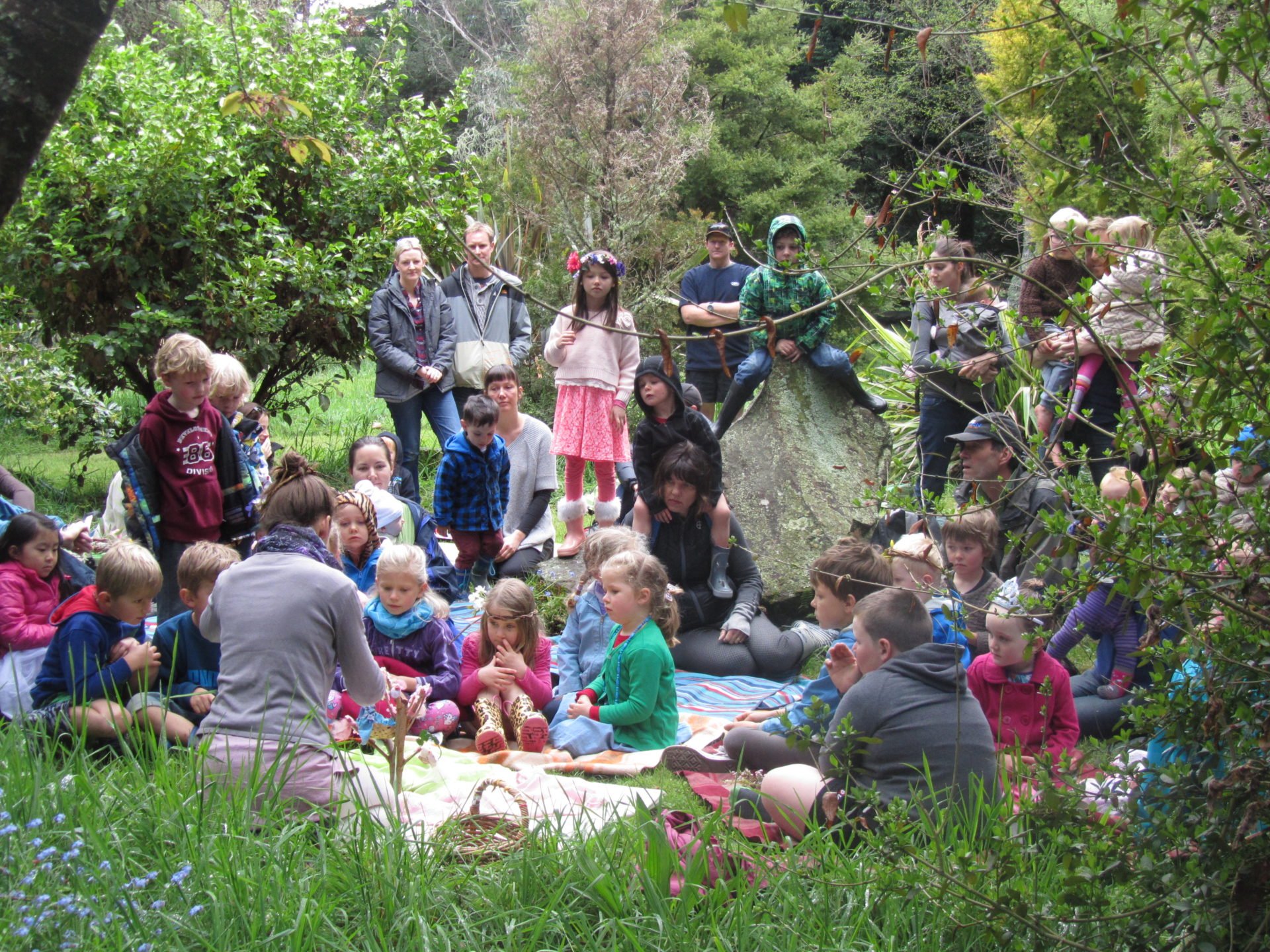Unhurried approach
At Four Seasons you will find an environment, held by a team of kaiako, where tamariki are given the time and the space to explore and experience the world with an honouring of time, at a slow and gentle pace. The first of our philosophy statements is that we offer an unhurried approach to childhood, providing a natural and secure environment that is homely, nurturing and sustainable.
Keeping our community well
Information from the MOE in light of the move to Covid Level 2 on Monday 15 February.
Nourishment
Nourishing children with nutritious, wholesome kai is important to us here at Four Seasons. We have always had a mostly plant based menu, and a rhythm to the meals we eat. At Four Seasons we all eat the same kai together. Tamariki see kaiako and each other trying and enjoying kai, sometimes it may be kai that they not have had before. Tamariki take time to experience different kai and that just because it may not be right one day it may be right the next day.
Rythm the co-parent
Rhythms bring an ease to life. When rhythms in the family home are consistent, and have a repetitive flow about them, they are the way to bring connection and most importantly, help with the transitions in daily life with our children.
Building connections to school
Recently we have had a group of tamariki transition through to school from us here at Four Seasons and we thought that perhaps others might be curious about what we do here at Four Seasons Kindergarten to plan for a responsive and supported pathway to school.
More time for uninterrupted play
At Four Seasons we are deeply reflective and considered with our teaching practices, and as the adults who hold and navigate up to 30 tamariki each kindergarten day we are always thinking about the impact we have on tamariki and their journey with us. We view play as being sacred, it’s the way in which a child learns, and experiences their world at kindergarten. At Four Seasons we nurture children in an unhurried approach, allowing as much time as possible for tamariki to ‘be’. Play is where friendships are made, a sense of belonging is created, and learning happens.
The overwhelm of boys
Children today, and particularly boys, need extra time, love and support in the fast paced world in which we now live. Kim John Payne, founder of Simplicity Parenting, talks specifically about the development of boys, and much of what he shares is also true for girls too. When we provide an environment for children with less stuff, more time, less adult talk and where purposeful work is the daily undertaking for the kindergarten teacher (and parent at home), we see children content in their world. The following are the key points from the talk ‘Overwhelm of Boys’ and some ideas you might like to try at home.
Navgivating unchartered times
Life has changed so much from what it looked like at the beginning of March when we saw the end of summer and our season begin to move into autumn. Here we are now in April with blustery days and snow beginning to appear on maunga in the south. As we secure ourselves in these times, at home with our families, and particularly as we come to what we hope is towards the end of our isolation, it can be a good opportunity to reflect, pause and picture ‘what do we want for our families at the end of this?’ This is a powerful way to help create a map to navigate uncharted territory as we rejoin our communities, our wider whanau, our work colleagues and life outside of our bubbles. What small changes can we make as a family that will take us closer to our hopes?
The beginning of our day
If you’ve been the first whanau to arrive to kindergarten on any given day you may have found the teaching team gathered around a candle in our wharekai (dining and kitchen space). Whilst the kindergarten day begins for tamariki at 8.30am, kaiako arrive around 8am and we come together to begin our day with lighting a candle, and sharing a verse.
Wrapping around our tamariki
As we begin to wrap gifts for loved ones, it’s a perfect time of the year to wrap around our children. The end of the year, finishing kindergarten or school can bring tenderness for our young ones. With rising temperatures outdoors, the internal ‘soul’ temperature can be quick to rise too. Tempers can be quick to fire with late nights and the usual predictable rhythms being relaxed in favour of catching up with family and friends or attending events celebrating the year’s successes (and struggles). Lean into the tools shared in Simplicity Parenting, particularly when life gets full.
A big event
Our approach with the young child here at Four Seasons is one that nurtures and respects that the early years in life are to be protected. We believe that much of the ‘adult world’ is one that is best filtered for tamariki. Whilst we would love to imagine that an event such as the deep tragedy that occurred in Christchurch earlier this year would never occur in our beautiful part of the country, it would be remiss of us to not consider and have a plan and procedure to protect tamariki and kaiako.
Kai time at Four Seasons
You only have to arrive in the morning and pick up your child in the afternoon to see how much of our day revolves around kai (food). The daily rolling of our bread, harvesting lettuce, celery and tending to our worm farm or compost. There are so many skills and understandings that children learn from their involvement with preparing and growing food. Skills such as cutting fruit and vegetables, holding tongs, understanding about where our food comes from, oral language involved in talking together as well as setting up the lifelong habits of eating fresh healthy food and drinking water.
Supporting children after trauma and loss
I urge all those with young children to read the following which has been adapted from the words of Kim John Payne, author of Simplicity Parenting. Filtering Out the horror and terror from the events that occured in our country is so important when we look to our tamariki. I urge that young children (under 9 or 10 years) not be exposed to news reporting on screen or radio, or unguarded and unfiltered adult conversations about the shooting that occured in Christchurch. Young children do not really grasp that repeated announcements are about one single horrific event. I’m a well adjusted adult and I can barely make sense of the horror.
Festivals
Steiner Education begins with the idea that human beings are physical as well as spiritual beings. Therefore the ‘spiritual’ education is not left out of our curriculum. Although we are not religious in the normal sense of the word and certainly do not subscribe to any particular bent, we do have an active spiritual life, based on the three important spiritual values or qualities of reverence, wonder and gratitude. Through our seasons, the festival table at kindergarten, stories, waiata and verses we bring a sense of the season or festival celebration to the children in a non-intellectual way.
Our philosophy
Our Guiding Vision
Nga tamariki nga rangatira mo apopo.
Our children are our leaders of tomorrow.
Te Whāriki and Four Seasons Kindergarten
In 2017, Te Whāriki; the national curriculum document for ECE, was updated to better reflects today’s early learning contexts and the learning interests and aspirations of children and their whānau. In early 2018 two of our kaiako; Fenella Tinworth and Laurie Newman each joined a group of kaiako who gathered together, to discover what the recent changes to Te Whariki meant for our mokopuna, whanau and kaiako here at Four Seasons. Below is the evaluation that Fenella submitted to the Ministry of Education.
Our daily rhythm
Rhythm is at the heart of everything we do at Four Seasons Kindergarten. The same daily pattern gives tamariki security and they know what to expect. Predictability is important for the young child and their sense of belonging is deepened from knowing what comes next. Tamariki trust in their day, their kaiako and the environment.
Daily nourishment
Ask any of our tamariki what day it is and you’ll most likely get an answer with “it’s hummus day” or “It’s soup day.” In fact all our days of our kindergarten week are signified by a lunch meal. It gives children a connection to their day that is sensory, they arrive and smell the rice cooking, or bread rolls baking. It’s deeply nourishing and we aim to provide children with wholesome, organic or bio-dynamic food from a vegetarian menu.
Choosing the right ECE for your whanau
Choosing a kindergarten for your child can seem overwhelming if it’s your first time exploring education outside your family home. We often get asked by parents “how do we know that the time is right for our child to start kindergarten?” or “how will we know which is the right choice for us?” Let’s share our thoughts on the first question, timing. At Four Seasons we are licenced for 30 tamariki, aged 2 years -6 years daily. We try to keep our daily roll at a maximum of 28 tamariki, taking into consideration the overall needs of the group of tamariki we have with us, along with the needs of the families in our community.
Kaiako (teachers)
Kaiako (teachers) are integral to our kindergarten. Knowing a little more about who it is that you entrust your tamariki with is important. You’ll find articles on each of our team in a little more depth, on our blog, and here’s an introduction to how our kaiako work as a team.
